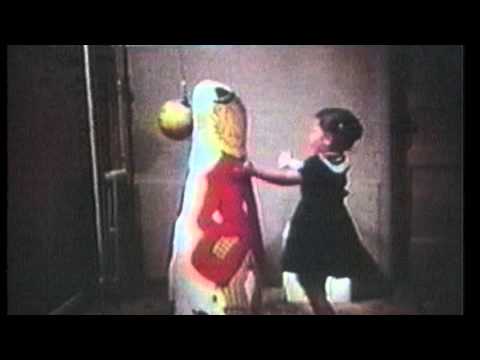Bandura's Social Learning Theory
ED 304: Ed Psych and Human Development
Author: Melinda Newson
Disclosure: ChatGPT was used in the creation of this resource
Albert Bandura’s social learning theory, also called cognitive learning theory, emphasizes the idea that people learn through observing and imitating the actions of others. Modeling is a fundamental component of this theory, along with an emphasis on observational learning, cognitive processes, and reinforcement and motivation in shaping behaviors. According to this theory, learning is a cognitive process that takes place in a social context. Bandura believed that individuals learn not only through direct experience but also by observing and imitating others. The key components of Bandura's social learning theory are:
Observational Learning: Bandura argued that people learn by observing the behaviors, attitudes, and outcomes of others. They acquire knowledge, skills, and behaviors by witnessing others and imitating what they observe. Observational learning occurs through modeling, where individuals identify with role models and reproduce their actions.
Cognitive Processes: Learning is not solely a product of external stimuli and reinforcement, but it also involves cognitive processes. Individuals actively engage in the cognitive processes of attention, retention, reproduction, and motivation. They pay attention to the model, retain the information in memory, reproduce the observed behavior, and are motivated to engage in the behavior based on anticipated rewards or punishments.
Reciprocal Determinism: Bandura proposed that human behavior is influenced by the interaction between personal factors (such as beliefs, attitudes, and cognitive processes), the environment, and the individual's behavior itself. These factors interact reciprocally, meaning that individuals are both influenced by their environment and capable of influencing it through their behavior.
Self-efficacy: Self-efficacy refers to an individual's belief in their ability to successfully perform a specific task or achieve a desired outcome. Bandura emphasized the importance of self-efficacy in motivation, goal-setting, and achievement. Individuals with high self-efficacy are more likely to set challenging goals, persist in the face of obstacles, and succeed in their endeavors.
Bandura's social learning theory has had a significant impact on fields such as psychology, education, and communication. It recognizes the complex interplay between cognitive processes, observational learning, and the social environment in shaping behavior.
Through this theory, observational learning and modeling can facilitate the acquisition of new skills. For instance, imagine a person who wants to learn how to play the guitar. They watch instructional videos of experienced guitarists playing various chords, strumming techniques, and songs. By carefully observing and imitating the techniques demonstrated in the videos, the person can acquire and develop their guitar-playing skills.
The Bobo doll experiment is famous for showing this social learning theory in action. Children in a room played with toys. Adults came in and attacked and punched the Bobo doll, and the kids copied their behaviors. The video below is a good overview of this experiment:

Importance to Education
Bandura's social learning theory highlights how individuals learn through observation, modeling, and reinforcement. It has implications for teaching and learning, emphasizing the role of social interactions and creating supportive environments. Educators can use modeling and positive reinforcement to promote positive behaviors and skills. The theory also underscores the importance of self-efficacy, fostering students' confidence and motivation. Overall, Bandura's theory explains the interplay between cognition and social context in education.
PRACTICE QUIZ
- Modeling refers to the process of observing and imitating others' behaviors.
- Modeling is the process of shaping behaviors through reinforcement.
- Modeling is the process of conditioning responses through stimuli.
- Modeling refers to the cognitive processes involved in learning.
- It highlights the importance of rote memorization.
- It emphasizes the role of direct instruction.
- It underscores the significance of social interactions and modeling in learning.
- It focuses on the importance of standardized testing.
- Observation and imitation of others
- Self Efficacy
- Reinforcement and punishment
- Cognitive Processes
This content is provided to you freely by BYU-I Books.
Access it online or download it at https://books.byui.edu/development_motivati/cjbeuJDQ.



